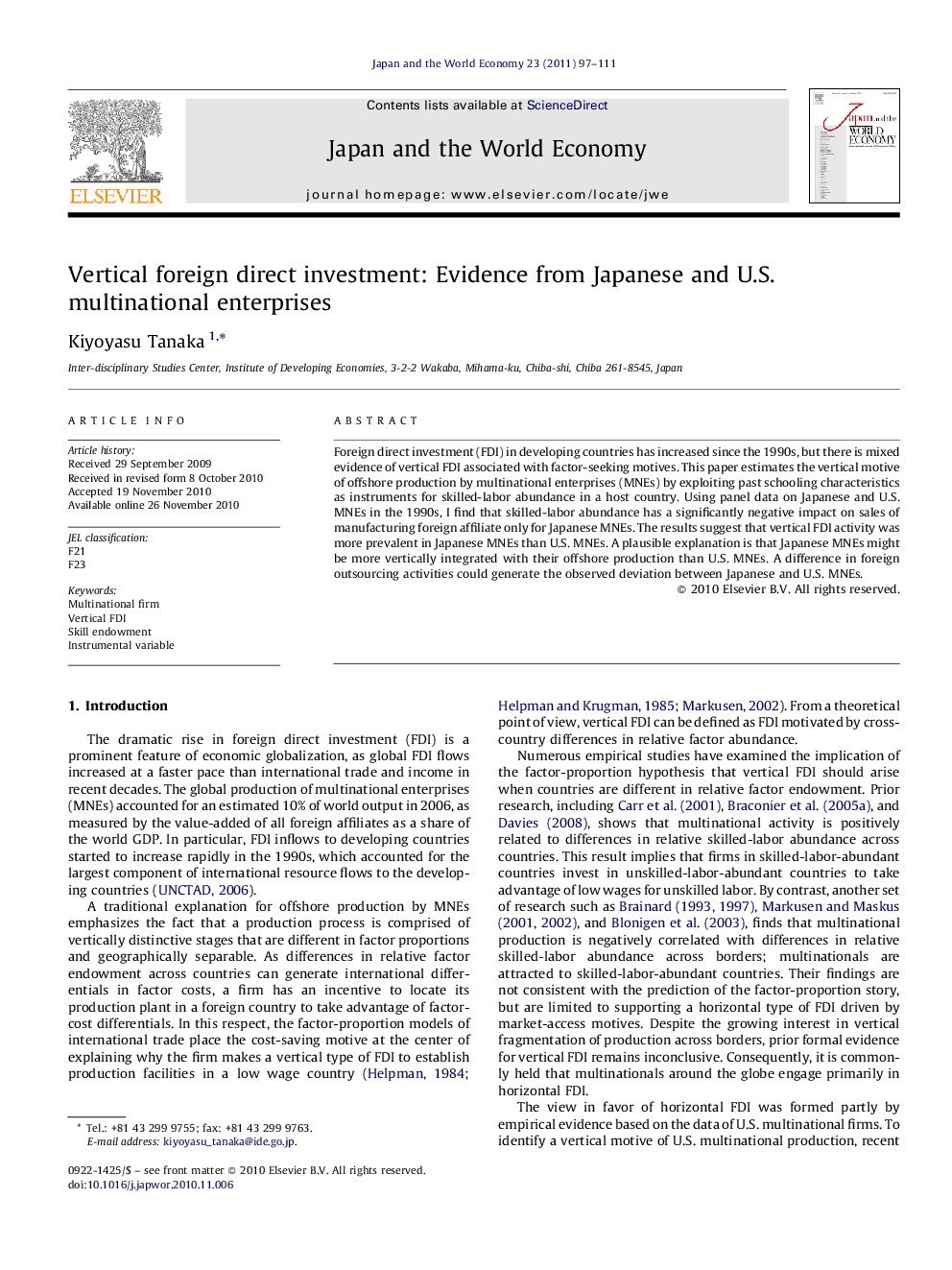| Article ID | Journal | Published Year | Pages | File Type |
|---|---|---|---|---|
| 5086237 | Japan and the World Economy | 2011 | 15 Pages |
Foreign direct investment (FDI) in developing countries has increased since the 1990s, but there is mixed evidence of vertical FDI associated with factor-seeking motives. This paper estimates the vertical motive of offshore production by multinational enterprises (MNEs) by exploiting past schooling characteristics as instruments for skilled-labor abundance in a host country. Using panel data on Japanese and U.S. MNEs in the 1990s, I find that skilled-labor abundance has a significantly negative impact on sales of manufacturing foreign affiliate only for Japanese MNEs. The results suggest that vertical FDI activity was more prevalent in Japanese MNEs than U.S. MNEs. A plausible explanation is that Japanese MNEs might be more vertically integrated with their offshore production than U.S. MNEs. A difference in foreign outsourcing activities could generate the observed deviation between Japanese and U.S. MNEs.
Research highlightsⶠSkilled-labor abundance in a host country decreases Japanese multinational sales. ⶠInstrumental-variable regression supports causality effects for Japanese multinationals. ⶠVertical FDI is more prevalent for Japanese than U.S. multinational firms.
